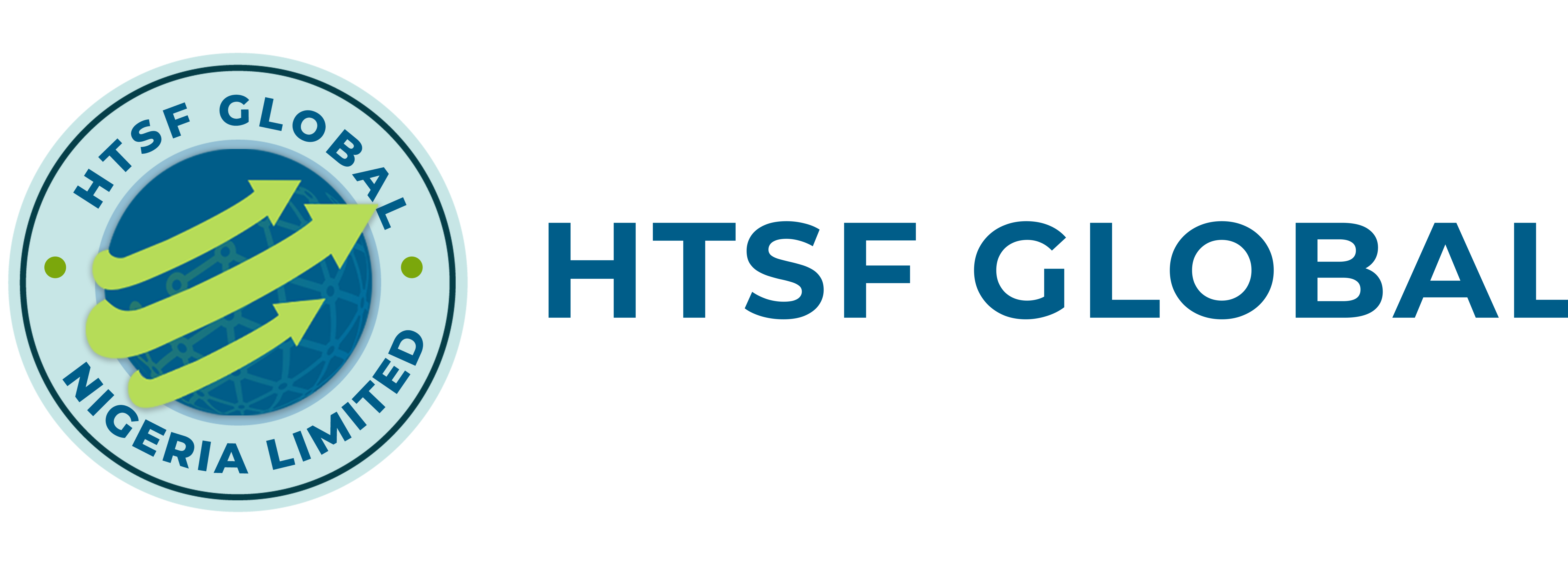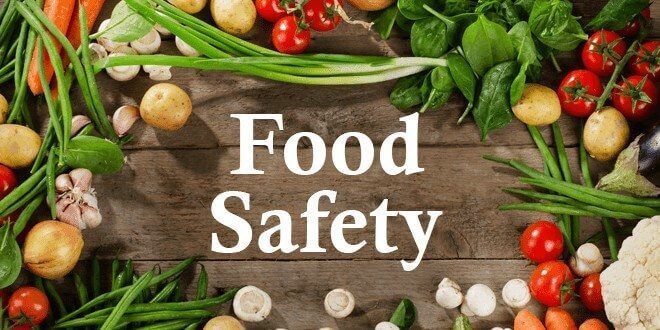
HTSF Global’s Approach to Food Safety
Table of Contents:
Table of Contents:
- Introduction
- HTSF Global: An Overview
- The Importance of Quality Assurance in Agriculture
- HTSF Global’s Quality Assurance Strategies
4.1. Comprehensive Product Range and Quality Control
4.2. Sustainable Farming Practices
4.3. Educational Initiatives and Community Empowerment
- Technology-Driven Quality Assurance
- Future Directions in Agricultural Quality Assurance
- Conclusion
References
Introduction

In an era where food safety and quality are paramount concerns for consumers worldwide, agricultural companies play a crucial role in ensuring the integrity of the food supply chain. HTSF Global, through its subsidiary HTS Farms, has emerged as a leader in Nigeria’s agritech sector, placing a strong emphasis on quality assurance in agriculture. Let’s get into HTSF Global’s approach to food safety, exploring the strategies and innovations that set the company apart in its commitment to delivering high-quality agricultural products to consumers across Nigeria and beyond.
Quality assurance in agriculture is not just about meeting regulatory standards; it’s about building trust with consumers, ensuring food safety, and promoting sustainable farming practices. In a country like Nigeria, where agriculture plays a vital role in the economy and food security, maintaining high-quality standards is essential for:
The Importance of Quality Assurance in Agriculture
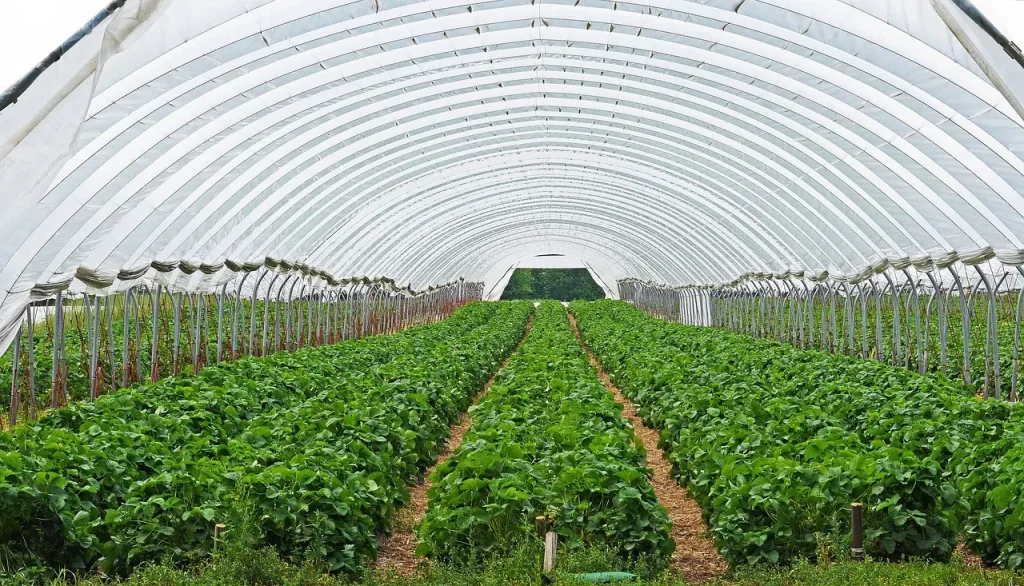
- Protecting Public Health: Quality assurance in agriculture plays a vital role in safeguarding public health. This involves:
- Minimizing chemical residues: Ensuring that pesticides and fertilizers are used responsibly and within safe limits to prevent harmful residues in food products.
- Preventing foodborne illnesses: Implementing strict hygiene practices throughout the production chain to reduce the risk of bacterial contamination like E. coli or Salmonella.
- Allergen control: Properly identifying and managing potential allergens in food products to protect sensitive consumers.
- Toxin management: Monitoring and controlling natural toxins that can occur in crops, such as aflatoxins in grains.
HTSF Global, through HTS Farms contributes to this by offering high-quality, safe agricultural inputs and educating farmers on their proper use.
- Enhancing Crop Yields and Livestock Productivity: Quality assurance measures significantly impact agricultural productivity:
- Seed quality: Providing farmers with high-quality, disease-resistant seeds that have better germination rates and yield potential.
- Optimal nutrition: Ensuring the availability of balanced, high-quality fertilizers that meet specific crop needs, leading to healthier plants and higher yields.
- Animal health: Offering quality feed, supplements, and veterinary products that improve livestock health, growth rates, and production efficiency.
- Equipment efficiency: Supplying well-maintained, efficient agricultural equipment that minimizes crop damage and maximizes harvest quality.
Through its comprehensive product range, HTS Farms enables farmers to access these yield-enhancing inputs.
- Improving Farmer Livelihoods: Quality assurance directly impacts farmers’ economic well-being:
- Higher market value: High-quality produce often commands better prices in the market, increasing farmers’ income.
- Reduced losses: Quality inputs and proper farming practices lead to fewer crop failures and post-harvest losses.
- Cost-effectiveness: While quality inputs may have a higher upfront cost, they often result in better returns on investment due to improved yields and reduced need for interventions.
- Sustainable practices: Quality assurance often promotes sustainable farming methods, ensuring long-term productivity and profitability.
HTSF Global’s educational initiatives and access to quality products support farmers in achieving these improvements.
- Boosting Consumer Confidence in Locally Produced Food: Quality assurance helps build trust between producers and consumers.
- Transparency: Implementing traceability systems allows consumers to know the origin and journey of their food.
- Consistency: Ensuring consistent quality across products builds brand loyalty and trust in local produce.
- Safety assurance: Rigorous quality control measures reassure consumers about the safety of locally produced food.
- Nutritional value: Quality assurance helps maintain the nutritional integrity of food products, meeting consumer health expectations.
HTSF Global’s high standards and positive customer feedback contribute to this increased consumer confidence.
- Facilitating International Trade and Exports: Quality assurance is crucial for competing in the global market:
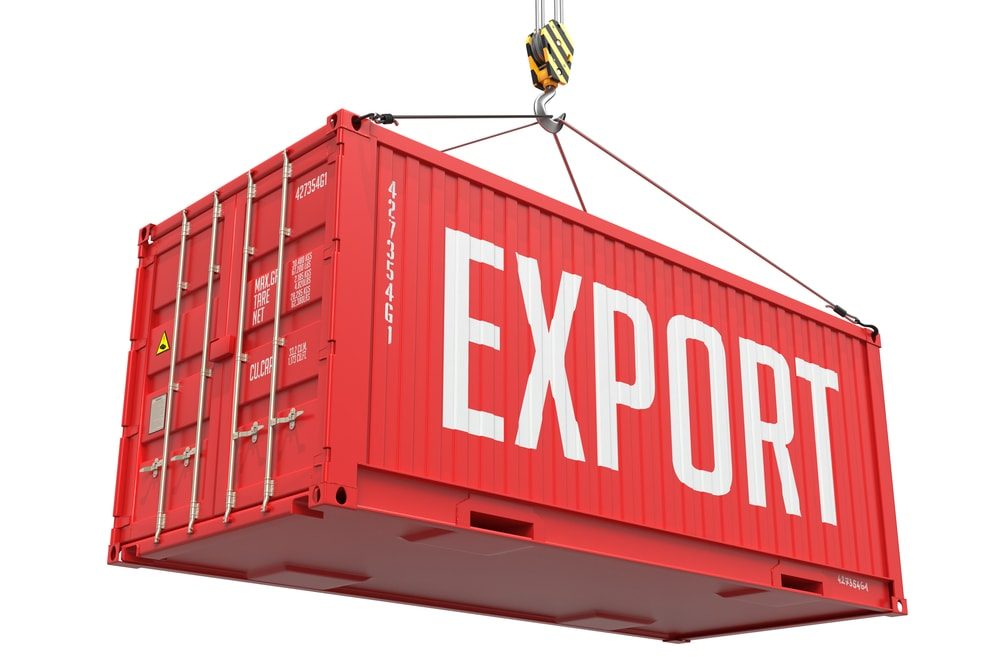
- Meeting international standards: Adhering to global quality standards (e.g., Global GAP, ISO 22000) opens up export opportunities.
- Reducing trade barriers: High-quality products are less likely to face import restrictions or rejections due to safety concerns.
- Competitive advantage: Consistently high-quality products can differentiate Nigerian agricultural exports in the international market.
- Building country reputation: A track record of quality exports enhances the reputation of Nigerian agriculture globally.
While HTSF Global currently focuses on the domestic market, its quality assurance practices lay the groundwork for potential future exports. By addressing these areas comprehensively, HTSF Global not only ensures the quality of its products but also contributes to the broader development of Nigeria’s agricultural sector. The company’s approach demonstrates how quality assurance in agriculture extends far beyond the farm, impacting public health, economic development, and international trade relations. Through HTS Farms e-commerce platform and educational initiatives, HTSF Global is playing a crucial role in elevating the standards of Nigerian agriculture, benefiting farmers, consumers, and the nation’s economy as a whole.
HTSF Global’s Quality Assurance Strategies
Comprehensive Product Range and Quality Control

- HTS Farms offers a wide array of agricultural products, each subject to strict quality control measures:
- Poultry Birds and Livestock: From day-old chicks to cattle, all animals are sourced from reputable breeders and undergo health checks.
- Farm Inputs and Agrochemicals: Seeds, fertilizers, and agrochemicals are carefully selected to ensure effectiveness and safety.
- Agricultural Equipment: All machinery and tools are sourced from trusted manufacturers known for durability and performance.
By maintaining high standards across its diverse product range, HTSF Global ensures that farmers have access to quality inputs at every stage of their operations.
Sustainable Farming Practices
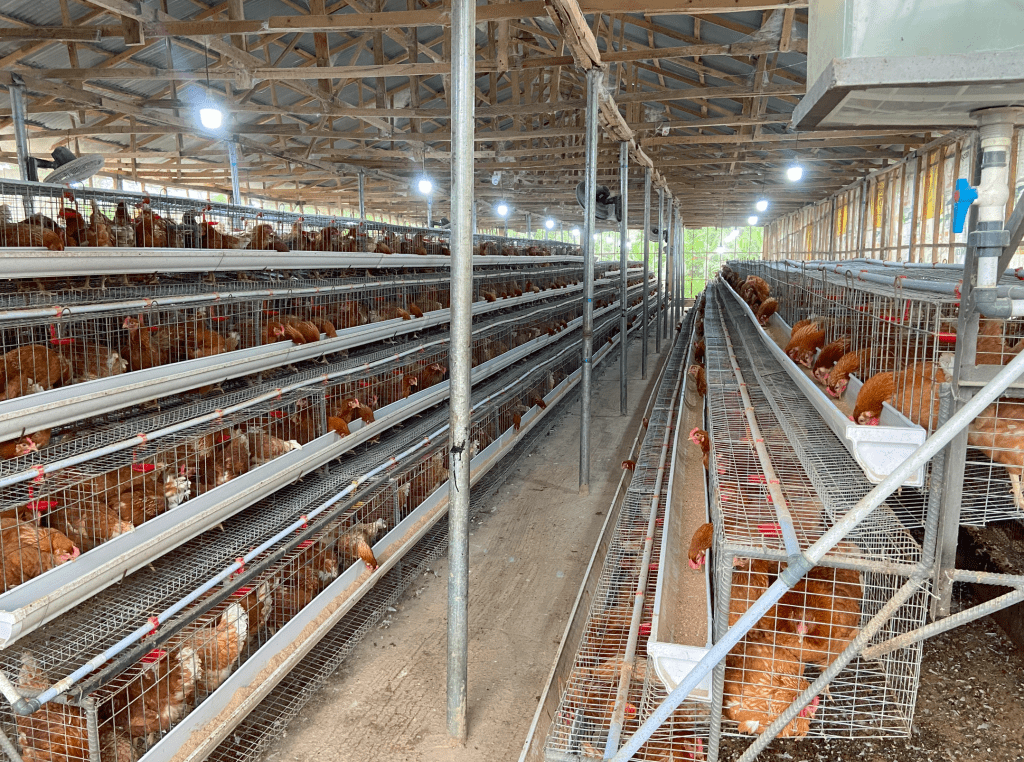
Quality assurance extends beyond the products themselves to the methods used in their production. HTSF Global promotes sustainable farming practices that not only ensure food safety but also protect the environment and promote long-term agricultural productivity. This includes:
- Encouraging the use of organic fertilizers
- Promoting integrated pest management techniques
- Supporting water conservation methods
- Advocating for soil health management
Educational Initiatives and Community Empowerment

HTSF Global recognizes that quality assurance begins with knowledge. The company offers educational programs and training to local farmers and communities, empowering them with the skills and information needed to implement best practices in agriculture. These initiatives cover topics such as:
- Proper use of agrochemicals
- Modern farming techniques
- Food safety standards
- Post-harvest handling and storage
By elevating the knowledge base of farmers, HTSF Global contributes to a culture of quality throughout the agricultural value chain.
Technology-Driven Quality Assurance
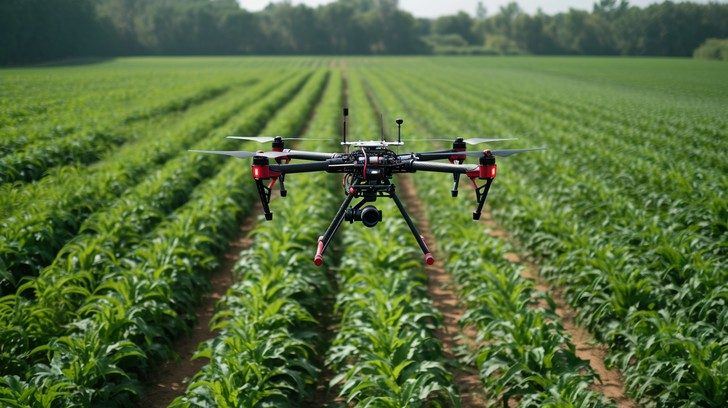
As an agritech company, HTSF Global leverages technology to enhance its quality assurance efforts:
- E-commerce Platform: The HTS Farms website serves as more than just a marketplace; it’s a hub for information on product quality and best practices.
- Data Analytics: By analyzing purchase patterns and customer feedback, HTSF Global can identify trends and potential issues in product quality.
- Traceability Systems: Implementation of digital traceability allows for quick identification and resolution of any quality concerns.
Future Directions in Agricultural Quality Assurance
As HTSF Global continues to evolve and expand its influence in Nigeria’s agricultural sector, the company is setting its sights on innovative approaches to further enhance its quality assurance practices. This forward-thinking strategy not only solidifies HTSF Global’s position as a leader in agritech but also promises to revolutionize the way quality is managed and assured throughout the agricultural supply chain..
Recognizing that knowledge is power in agriculture, HTSF Global is also focusing on expanding its educational programs. The company plans to scale up its farmer education initiatives, reaching more communities not only across Nigeria but also in neighboring countries. This expansion reflects HTSF Global’s understanding that quality assurance in agriculture is as much about empowering farmers with knowledge as it is about providing them with quality inputs. These educational programs will cover a wide range of topics, from advanced farming techniques and proper use of agrochemicals to post-harvest handling and storage methods. By elevating the knowledge base of farmers across the region, HTSF Global aims to create a ripple effect of improved agricultural practices and higher quality produce.
HTSF Global is looking to forge strong partnerships with agricultural research institutions. This collaboration strategy is designed to keep the company at the forefront of quality assurance techniques and technologies. By working closely with research centers, HTSF Global can gain early access to emerging agricultural innovations, participate in field trials of new crop varieties or farming methods, and contribute to the development of new quality standards. These partnerships could also provide valuable data and insights that inform HTSF Global’s own product development and quality assurance processes.

HTS Logistics is exploring the implementation of smart storage solutions at key distribution points. These facilities will be equipped with advanced monitoring systems to maintain optimal temperature and humidity levels, extending the shelf life of produce and reducing waste. This approach not only ensures food safety but also contributes to food security by reducing losses in the supply chain.
By integrating these services from input supply through HTS Farms, to fresh produce sales via HTS Plus, and efficient distribution through HTS Logistics HTSF Global is creating a closed-loop system that addresses every stage of the agricultural supply chain. This holistic approach allows for unprecedented levels of quality control and traceability, as the company can oversee and optimize each step of the process.
This expansion into fresh produce sales and logistics also positions HTSF Global to play a crucial role in ensuring food security. By shortening the supply chain and reducing food miles, the company is not only providing fresher produce to consumers but also decreasing the carbon footprint associated with food transportation. This aligns with global sustainability goals and positions HTSF Global as a environmentally conscious leader in the agricultural sector.
Furthermore, this integrated approach enables HTSF Global to respond more effectively to market demands and supply chain disruptions. By having control over multiple stages of the supply chain, the company can quickly adjust to changes in consumer preferences or unexpected challenges, ensuring a stable food supply even in uncertain times.
HTSF Global’s expansion into fresh produce sales through HTS Plus and transportation via HTS Logistics represents a significant step forward in the company’s mission to revolutionize Nigeria’s agricultural sector. This integrated approach not only enhances food safety and security but also creates a more efficient, sustainable, and responsive agricultural ecosystem. As HTSF Global continues to innovate and expand its services, it is setting new standards for agricultural quality assurance and supply chain management, contributing significantly to the development of a robust and resilient food system in Nigeria and beyond.
Conclusion

HTSF Global’s approach to quality assurance in agriculture demonstrates a holistic commitment to food safety, farmer empowerment, and consumer trust. By combining rigorous standards, technological innovation, and community engagement, the company is not just selling agricultural products, it’s cultivating a culture of quality that has the potential to transform Nigeria’s agricultural sector. As HTSF Global continues to grow and expand its reach, its quality assurance practices serve as a model for the industry, promising a future where safe, high-quality food is accessible to all.
References:
- HTSF Global company documents and website content
- Nigerian Agricultural Quality Standards
- FAO Guidelines on Good Agricultural Practices
- Journal of Food Safety and Quality Assurance in Developing Countries
